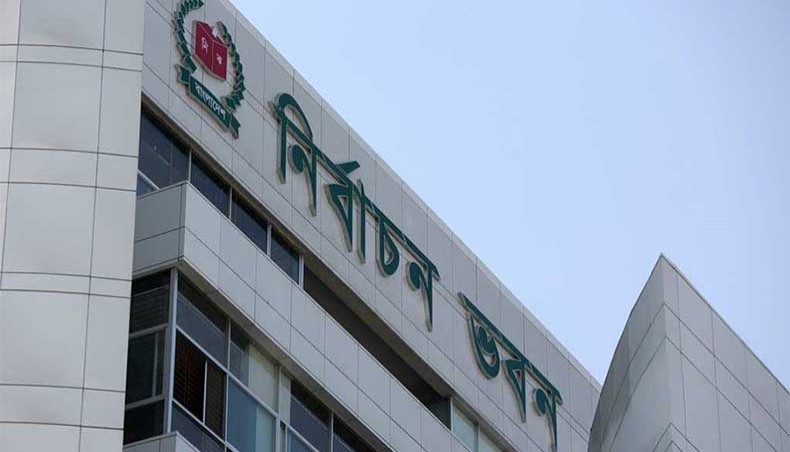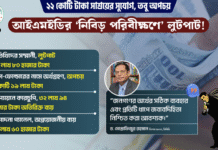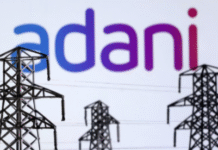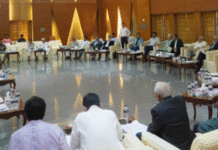
The affidavits submitted by the candidates before the elections still await scrutiny by the state agencies concerned, including the Anti-Corruption Commission, which have yet to heed the repeated calls from good governance campaigners.
The affidavits show that the incomes of many candidates have been doubled, tripled, or even further increased during their stay in power over the years, raising doubt about the sources and methods of accumulation of the wealth.
Also affidavits of some other candidates show them poor with no car or houses that have also raised doubt about the veracity of the information.
A 2005 ruling by the High Court bench led by Justice Abdul Matin made submission of affidavits with eight kinds of information compulsory by candidates from the national election of 2008.
Since the polls affidavits have been introduced, the civil society and good governance campaigners have been alleging that no state agencies, including the ACC, Election Commission and National Board of Revenue, have scrutinised the affidavits.
They allege that without scrutiny by the relevant agencies, the entire practice of submitting affidavits becomes futile.
‘The goal of submission election affidavits by candidates is not fulfilled as they are not brought under the scrutiny of the authorities concerned,’ former adviser to caretaker government M Hafizuddin Khan told New Age.
‘The truth will never be known if the affidavits remain unchecked and keep gathering dust,’ said the retired civil servant, urging the authorities concerned to take necessary steps in this regard.
TIB executive director Iftekharuzzaman told New Age that this is not the first time that such mind-boggling pictures of the increase in wealth and income of the public representatives have been made public since the provision of mandatory disclosure was created under the ‘Representation of the People Order’.
‘Despite increasingly agonising public frustrations, no credible action has ever been taken by relevant authorities, especially the EC, ACC, or NBR, to serve the lofty immediate and long-term purposes of this disclosure,’ he said.
‘Continued failure to ensure accountability is not only providing impunity to abuse of power but also leading to further deepening and widening of corruption at all levels,’ he added.
Analysing the affidavits of candidates for the 12th national election, TIB released a report before the January 7 polls that said the election witnessed the highest number of candidates with movable or liquid assets of Tk 1 crore or more.
This time, the figure is 571, up from 274 in the 2008 election. In 2018, the number of candidates with movable assets of over Tk 1 crore was 522.
The TIB findings show as many as 18 candidates have movable or liquid assets worth over Tk 100 crore. These include jute minister Golam Dastagir Gazi with Tk 1,345.77 crore, independent candidate SAK Ekramuzzaman with Tk 421.16 crore, prime minister’s adviser Salman F Rahman with Tk 315.76 crore, and AL candidate Abu Zafar Mohammad Shafi Uddin with Tk 306.68 crore.
Food Minister Sadhan Chandra Majumdar saw the highest increase in wealth—by 6,350.18 per cent—over the last 15 years.
Law Minister Anisul Huq saw his wealth go up by 1,063 per cent in the past five years, the highest among the ministers and state ministers.
Immediate past commerce minister Tipu Munshi saw the highest bump in income among ministers and state ministers since 2018, with his annual income increasing by 2,131.12 per cent.
Among lawmakers, Anwar Hossain, a candidate from Pirojpur-2, have seen the highest increase in income over the past 15 years, with his annual earnings increasing by 7,116.3 per cent.
The TIB report shows that the candidates possessing between Tk 200 crore and Tk 300 crore in liquid assets include Yusuf Abdullah Harun from Cumilla-3 [Tk 277.61 crore], Dilip Kumar Agarwala from Chuadanga-1 [Tk 276.19 crore], Abdul Momin Mondol from Sirajganj-5 [Tk 253.24 crore], and Gazi Golam Mortoza of Narayanganj-1 [Tk 233 crore].
Abdul Kader Azad from Faridpur-3, Sirajul Islam Mollah from Narsingdi-3, Sayeed Khokon from Dhaka-6, Selima Ahmed from Cumilla-2, Mahmuda Begum and Muhammad Abdullah from Lakshmipur-4, Afruza Bari from Gaibandha-1, Nur Mohammed from Jamalpur-1, Dewan Zahid Ahmed from Manikganj-2, and finance minister AHM Mustafa Kamal from Cumilla-1 have between Tk 100 crore and Tk 200 crore in movable wealth.
The TIB also said that they have reliable information about a minister, who was also an AL candidate in the January 7 election, and his wife having joint ownership of six companies abroad that include, among others, real estate businesses, but he did not declare these ownerships worth Tk 2,000 crore in his affidavit.
In the wake of the call to scrutinise the candidate affidavits before the January 7 polls, ACC chairman Mohammad Moinuddin Abdullah hinted at verifying the wealth information of the candidates after the January 7 election.
However, while contacted, ACC chairman Mohammad Moinuddin Abdullah told New Age in the past week that the commission has not started scrutinising the election affidavits of candidates till now.
Mentioning that many candidates hide information in their polls affidavits, Shushashoner Jonno Nagorik secretary Badiul Alam Majumder said that the entry of many self-interested individuals into the electoral arena could be blocked if the EC takes the submission of affidavits seriously and thoroughly scrutinise them.
The returning officers can check the tax return, loan informatio, and criminal charges in affidavits, but nothing more than that, he said.
He said that if the EC lacks the capacity to scrutinise the affidavits, they can use the help of the ACC and NBR for this purpose.
‘Unfortunately, despite our repeated efforts, we have not been able to convince the EC to scrutinise the affidavits and disqualify those who submit false information,’ he also added.
However, Election Commission officials said that the nomination paper can be cancelled of a candidate if she or he can be found giving false affidavit before the election, but the EC has nothing to do after the polls.
Election commissioner Md Alamgir said, ‘If someone challenges the affidavits of a candidate, if verified by the EC, the candidate›s nomination will be cancelled. The EC has this power, but it has nothing to do after the polls.’
New Age









